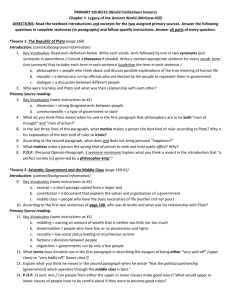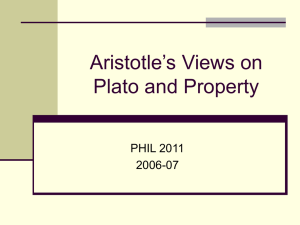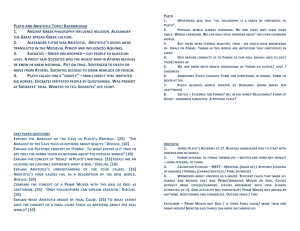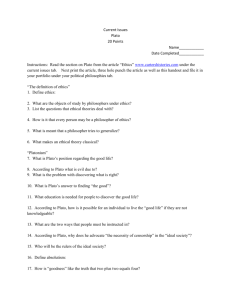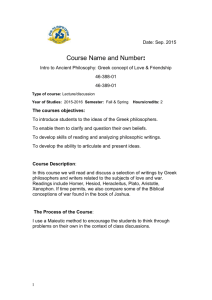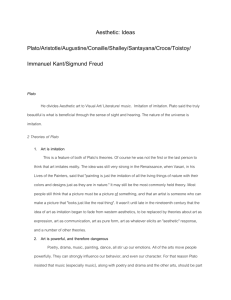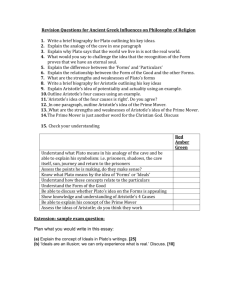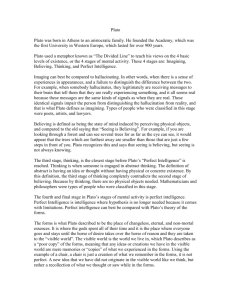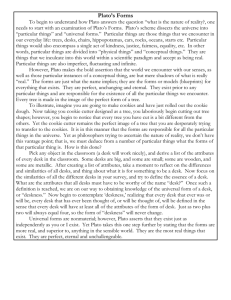Plato
advertisement
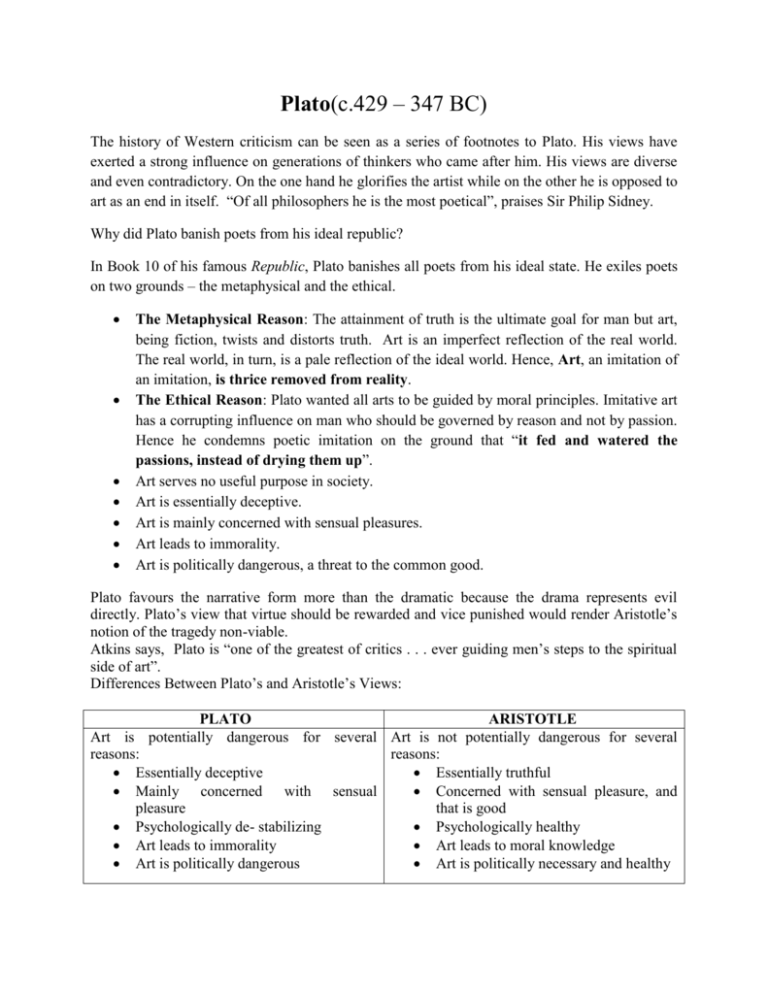
Plato(c.429 – 347 BC) The history of Western criticism can be seen as a series of footnotes to Plato. His views have exerted a strong influence on generations of thinkers who came after him. His views are diverse and even contradictory. On the one hand he glorifies the artist while on the other he is opposed to art as an end in itself. “Of all philosophers he is the most poetical”, praises Sir Philip Sidney. Why did Plato banish poets from his ideal republic? In Book 10 of his famous Republic, Plato banishes all poets from his ideal state. He exiles poets on two grounds – the metaphysical and the ethical. The Metaphysical Reason: The attainment of truth is the ultimate goal for man but art, being fiction, twists and distorts truth. Art is an imperfect reflection of the real world. The real world, in turn, is a pale reflection of the ideal world. Hence, Art, an imitation of an imitation, is thrice removed from reality. The Ethical Reason: Plato wanted all arts to be guided by moral principles. Imitative art has a corrupting influence on man who should be governed by reason and not by passion. Hence he condemns poetic imitation on the ground that “it fed and watered the passions, instead of drying them up”. Art serves no useful purpose in society. Art is essentially deceptive. Art is mainly concerned with sensual pleasures. Art leads to immorality. Art is politically dangerous, a threat to the common good. Plato favours the narrative form more than the dramatic because the drama represents evil directly. Plato’s view that virtue should be rewarded and vice punished would render Aristotle’s notion of the tragedy non-viable. Atkins says, Plato is “one of the greatest of critics . . . ever guiding men’s steps to the spiritual side of art”. Differences Between Plato’s and Aristotle’s Views: PLATO ARISTOTLE Art is potentially dangerous for several Art is not potentially dangerous for several reasons: reasons: Essentially deceptive Essentially truthful Mainly concerned with sensual Concerned with sensual pleasure, and pleasure that is good Psychologically de- stabilizing Psychologically healthy Art leads to immorality Art leads to moral knowledge Art is politically dangerous Art is politically necessary and healthy


